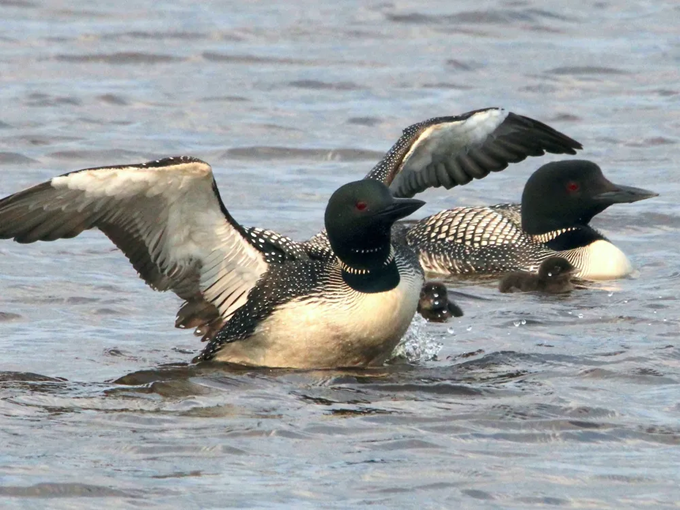BOB SIEDERER
12 August 2024

Hello again Science fans!
These past few years have put us all through a bit of a wringer. Prior to the pandemic, 11% of Americans reported symptoms of anxiety and depression, according to the Household Pulse Survey, a tool of the Census Bureau. Then came COVID, and that number increased to 42.6%. Today, it is down to 20.7%, but that is still almost double pre-pandemic numbers. The political climate certainly contributes to this, I’m sure. But the biggest component seems to be young adults. According to “The Morning” newsletter from the New York Times on August 8, the percentage of young adults reporting symptoms had been rising for around a decade before COVID. Uncertainty about their future, inflation, rent increases, and job loss, as well as the Supreme Court’s ruling abolishing the federal right to abortion all affect younger people more.
The older we are, the happier we tend to be. A study from Boston College asked people between 18 and 80 about their memories from the early part of the pandemic. The older the participants were, the more positive their memories, which is not what one might expect as those same people would be more at risk from COVID.
The recent breakneck changes in the political environment seem to be helping improve the national mood somewhat. It turns out that Tim Walz, the Democratic nominee for Vice President, is a map nerd and used Global Information Systems (GIS) software extensively as governor of Minnesota.
The Animal Kingdom
The common loon, a bird so associated with Canada that it appears on the tails side of the dollar coin, informally called the Loonie, has a haunting call that instantly brings me back to summer fishing vacations on Canadian lakes. Here’s what the call sounds like. One loon, who is at least 38 years old, has now hatched at least 42 offspring, a record! (She’s in Michigan, though).
Then there’s this adorable, 4 week old mountain lion kitten who is now at the Oakland Zoo. Briar is the 27th mountain lion rescued by its Bay Area Cougar Action Team.
Friday was the 80th birthday of the most well known public service mascot in the US, Smokey Bear. The history of this iconic bear is more involved than you may know, and quite interesting.
Climate and the Environment
The streak of months with new average global heat records ended with July at 13, although not by much. This in a month that included the two hottest days ever recorded on the planet. California continued to break records, however.
The World Economic Forum recently released their 2024 Energy Transition Report. The US comes in at #19, with a score of 64.0, the same as last year. China has moved ahead of us (barely). Sweden, which leads the pack with a score of 78.4, is followed by Denmark and Finland.
As heat waves become more frequent and severe, different indexes have been developed to report just how bad things are. Researchers have determined that five of the six indices don’t capture the severity of the heat and humidity. Only one, the lethal heat-stress index, was able to capture what its name suggests, especially in low humidity areas.
Since communicating scientific information accurately and clearly is critical to acceptance, this seems like something that should be fixed.
Space
The biggest news from space is probably the problems with the Boeing Starliner capsule, currently docked at the International Space Station, Suni Williams and Butch Wilmore appear to be stranded there and will have to wait until 2025 to return to Earth…using SpaceX instead of the Starliner. The theme from Gilligan’s Island is now playing in my head…”a three hour cruise”!
There’s a lot of stuff in space. Starlink alone accounts for thousands of small satellites. China launched their first set of satellites to compete with Starlink, the Qianfan broadband network, and the launch did not go well. The rocket’s upper stage broke up after the deployment, leaving more than 300 trackable pieces of debris in orbit. The 18 satellites are where they are supposed to be, however.
A far more successful mission ended a 15 year career last week. Originally only intended to function for seven months, the NEOWISE spacecraft detected more than 200 near-Earth objects, including 25 new comets.
Artificial Intelligence
The “singularity”, when man and machine merge, seems closer than ever. Futurist Ray Kurzweil now says we’ll reach it by 2045. That’s only 21 years away! The effects on humanity will be profound.
AI has such promise. It also has significant drawbacks when used by bad actors. One of the good uses is analyzing huge amounts of data, and it often finds things missed by the original authors and peers. Researchers at Lawrence Berkeley National Labs developed an algorithm to sift through scientific papers looking for predictions for possible thermoelectric materials, and it was so successful that it may be used to search out other topics as well.
This week’s event pics
- Mainstream Monotony – AI in Journalism & Storytelling, Thursday, August 15, 7:00 PM, at the San Francisco Chronicle
- How Birds Sense the World – Livestream, Thursday, August 15, 7:00 PM
- Mapping our Galactic Backyard, Monday, August 19, 7:30 PM, San Francisco
Have a great week in Science!
Bob
Upcoming Events:
Click to see the next two weeks of events in your browser.
